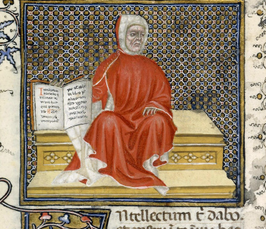The symposium aspires to provide an up-to-date overview of the research on juristic literature and on specific groups of manuscripts from various periods from late antiquity to the fifteenth century. Included in this broader objective are methodological essays from the fields of paleography and codicology as well as questions of textual criticism and considerations that draw upon databases and on-line resources. Among the issues to be given special attention are juristic books from the late antique period, Roman and Lombard law in the early Middle Ages, twelfth- and thirteenth-century glossators of Roman and canon law, the transmission of juristic texts in the fourteenth century, and book production for the universities of the fifteenth century. It is also planned to collect the papers and many of the illustrations presented at the symposium in a volume that will also be useful as a reference work on the subject.
14:30 – 15:00 – Ankunft und Registrierung – Kaffee15:00 – 15:15 – Begrüßung durch Stefan Vogenauer15:15 – 15:30 – Gero Dolezalek, Antonio Ciaralli, Vincenzo Colli, Einführung
15:30 – 16:15 – Serena Ammirati (Roma): Per una storia del libro antico: osservazioni paleografiche e codicologiche sui manoscritti latini di argomento giuridico dalle origini alla tarda antichità16.15 – 17:00 – Wolfgang Kaiser (Freiburg i. B.): Überlieferung und Textkritik der Digesten Justinians17:00 – 17:30 – Kaffeepause17:30 – 18:15 – Antonio Ciaralli (Perugia): La partecipazione dei pratici del diritto alla trasmissione delle leggi18.15 – 19:00 – Charles Radding (Chicago): Making the transition from Lombard to Roman law: the Walcausina manuscripts and Köln W 32819:00 – 20:00 – Abendessen mit Buffet im Institut (in der Lobby)20:00 – 21:00 Magnus Ryan (Cambridge): Lombarda Glosses and Early Feudal Law
9:30 – 10:15 – Nicoletta Giovè (Padova): I copisti dei manoscritti giuridici: il caso degli studenti (e dei professori) universitari10:15 – 11:00 – Elisabetta Caldelli (Caserta): Quattro passi tra i manoscritti giuridici di età umanistica11:00 – 11:30 Kaffeepause
11:30 – 12:15 – Anders Winroth (Oslo): The many philological problems of editing Gratian’s Decretum12:15 – 13:00 – Danica Summerlin (Sheffield): Old law, new collections: decretals & old law in canonical collections, 1140-123413:00 – 14:00 Mittagspause (Imbiss in der Lobby):14:00 – 14:45 – Gero Dolezalek (Leipzig): Frühe Glossierung bei Texten Justinians, als noch nicht die Glossen von Irnerius dominierten14:45 – 15:30 – Emanuele Conte (Roma): Forma Iuris Medii Aevi. Per una nuova mappa geografica e concettuale della letteratura giuridica tra 1130 e 123415:30 – 16:00 Kaffeepause
16:00 – 16:45 Susanne Lepsius (München): Bischöfe als Leser von Bartolus von Sassoferrato16:45 – 17:30 Vincenzo Colli (Frankfurt/M.): L’autore e il suo testo. Giuristi tra Due e Trecento: prassi scrittorie e composizione delle opere19:00 – Abendessen im Lokal (Restaurant Taboo, Unterlindau 69)
9:30 – 10:15 Lucia Pinelli (Firenze): Leggere banche dati on-line. Mirabile nel panorama delle risorse per gli studi medievistici10:15 – 11:00 Gero Dolezalek (Leipzig): Die Datenbank Manuscripta Juridica11:00 – 11:30 Kaffeepause11:30 – 12:30 – Abschliessende Diskussion: Forschungsperspektiven und -projekte


No comments:
Post a Comment
Note: Only a member of this blog may post a comment.